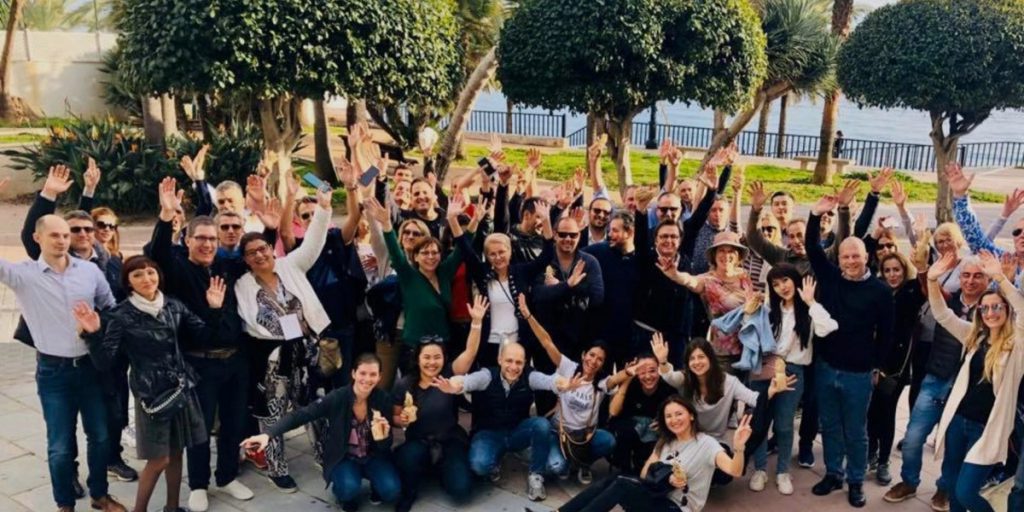Top 12 Tips For Planning A Successful Retreat
Employees are more productive and motivated when they feel a greater sense of involvement in establishing their organization’s goals and ideals.
A carefully-planned retreat motivates teams to enlist their creative participation to set goals and contribute to decisions. Just as important, effective retreats produce concrete approaches for tackling long-standing and difficult organizational problems.
When thinking about planning a company retreat or team offsite, here are 12 tips to help you get started.

1. Purpose and Themes
What is the purpose of your retreat? Knowing this will moderate all other planning decisions. List everything you need to achieve with your team, and select the most critical topics. Retreats are fatiguing. Even the fun is fatiguing! So select your topics and a narrow focus.
2. Goals and Desired Outcomes
What are the outcomes you desire? After you have determined the purpose of your retreat, focus on your exact goals. Staff retention? Sustained performance? Wake-up call? Motivation? Clarity? Business or divisional planning with staff input? Determine what you want each staff member to leave with, what changes you want to foster within employees and within the team, and what your team will leave with as a unit.
Outcomes can include not only improvements in staff performance and workplace cohesion but also how the retreat will make employees feel and how the experience will be imprinted on them afterward.
3. Location
Take it off site. Whether it’s in the same city, in a different state, or in another country. Consider booking a massive villa or block out an entire section of a hotel for a multi-day retreat. For a smaller budget, a boardroom, or vacation property in a quiet outdoor location may be a good fit.
The more unique the environment, the better it will be for shifting attention away from daily business and personal demands to an open and creative-minded focus of the retreat. Solicit employee input on both the location and key areas needing improvement and growth.
4. Budget
Determine the retreat budget. Apart from obvious expenses such as travel and accommodations, be sure to budget for team-bonding activities, food and beverage, supplies, equipment, and company swag or gifts.
5. Retreat Facilitator: Internal or External?
Decide who will facilitate the retreat. C-level executives may want to act as facilitators or appoint specific team members. You may prefer to hire someone with experience as a retreat facilitator. UnOrdinary Spaces have facilitated many events and retreats for remote companies, and can also serve as an on-site host to set the stage for the retreat, deliver a memorable experience, and ensure that everything runs smoothly on-site.
6. Schedule
Settle on the dates and the number of days. Typical off-site retreats range from 1 to 5 days, including travel time. Determine what workdays you are willing to sacrifice if any. Maybe a Saturday-to-Wednesday retreat works for your company, shutting down for only 3 weekdays.
Other ways to reduce operational disruptions are to run separate divisional retreats, smaller regional gatherings, or have a distinct leadership retreat.
7. Agenda
Once you have defined your themes and know the budget, location and duration of your retreat, think through what you will cover each day, who will present which topics, what group or subgroup(s) will attend and interact, and what preparation will be required. Give ample lead time to permit everyone to be successful. Include meal plans and activities.
8. Team-Building Activities
In addition to your critical topics, factor in team activities designed to build connections, trust, culture, and cohesion. The most important part of a retreat is to facilitate the interaction needed to move the group successfully to your objective and desired outcomes.
Plan some interactive activities and team challenges to help people feel open, creative, supportive, and connected. UnOrdinary Spaces has fun and engaging team experiences that are pre-planned and run seamlessly. If you are seeking personalized recommendations, contact an Event Specialist
9. Social Activities
Don’t leave social cohesion to chance. Fun, engaging, let-your-hair-down moments to behave casually or informally. Plan ways to include these. Hiking, party or celebration, beach bbq, sailing, or a foodie tour, just to name a few. Each of these social activities provides a pause and the ability to gain input from each participant. Your social activities need not be expensive. One affordable option could be a themed dinner or wine tasting experience.
10. Wellness
Include opportunities for wellness, and rejuvenation. Short respites from the daily agenda will be key to having fun and staying fresh and attentive. Wellness experiences can be social, as well as team bonding in nature. For example, a yoga session in an outdoor green space, standup paddling, or even a sunset run at the beach, followed by a fireside chat with deeper heart-felt discussions. During your retreat, wellness is key.
11. Health & Safety
Covid isn’t done with meetings and events. When planning a retreat, it’s important to be knowledgeable about the Covid-related requirements in your host destination, which might institute new mask mandates or other restrictions if cases continue to rise.
Also, consider the use of enhanced protocols such as pre-event testing of all participants along with masking during the event and/or seating that allows more distance between participants. One other possibility: shifting to an all-virtual meeting.
12. Track and Measure
Once you have defined your purpose and goals and drafted your planning framework, think through how you will measure the return on investment from these efforts. You should start by examining the purpose and goals of your retreat and work back from these primary objectives to determine some measurable outcomes.
Trust, cooperation, and openness—elements once viewed as intangibles—can all be orchestrated through your retreat and powerful fuel for company growth.
If you’re having difficulty planning fun and memorable retreats and team-building activities, contact an UnOrdinary Event Specialist to help you get started.


